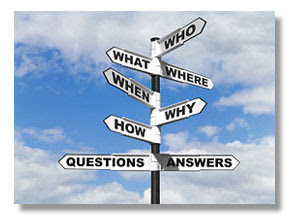
5 Essentials for Strong Mental Health
When is the last time you scheduled a Mental Health Check-up?
 We all have a doctor we see regularly for annual physicals and those colds and minor illnesses that come up throughout the year. We religiously schedule our teeth cleaning appointments with the dentist. Women schedule annual gynecological exams, some people see a chiropractor on a regular basis, and many go to church weekly to nurture our soul. We know research has shown that taking care of our mental health is as essential as taking care of our physical and spiritual health. But, how often do we schedule regular mental health check-ups?
We all have a doctor we see regularly for annual physicals and those colds and minor illnesses that come up throughout the year. We religiously schedule our teeth cleaning appointments with the dentist. Women schedule annual gynecological exams, some people see a chiropractor on a regular basis, and many go to church weekly to nurture our soul. We know research has shown that taking care of our mental health is as essential as taking care of our physical and spiritual health. But, how often do we schedule regular mental health check-ups?
There are 3 reasons why is it important to schedule regular Mental Health Check-ups with a professional counselor…
1. The Present: To address any current issues you are facing.
2. The Past: To determine if you have any unresolved issues from the past that are causing you disturbance in your current life.
3. The Future: To develop effective life management skills to help you daily live the life you desire.
Once you are “healthy” mentally, checking in with your counselor on a regular basis helps address whatever issues may arise so that you maintain strong mental health throughout your lifespan. In addition to physical health improvement, research has shown that nurturing our mental health leads to maintaining healthy relationships with intimate partners, family members and friends.
Along with Mental Health Check-ups…
There are 5 Essential Ways to achieve and maintain strong Mental Health:
 1. Practice Good Self-Care – practicing good self-care is the most important step to mental wellness. This involves, eating well, regular exercise, 7 to 9 hours of sleep each night and using relaxation techniques such as meditation and deep breathing to reduce stress.
1. Practice Good Self-Care – practicing good self-care is the most important step to mental wellness. This involves, eating well, regular exercise, 7 to 9 hours of sleep each night and using relaxation techniques such as meditation and deep breathing to reduce stress.
2. Build a Support System – people need people. We all need to have relationships with people who are safe and with whom we can share our life’s journey. Our support system can consist of our partner, family members or friends.
3. Resolve the Unresolved – most mental and emotional distress comes from unresolved issues. These issues may stem from abuse, a lack of problem solving skills, or circumstances out of our control, but they must be resolved or they will affect our current and future mental well-being.
4. Nurture your Spiritual Beliefs – spiritual beliefs give us a sense of purpose, are usually the basis for our value system, and often give us hope and strength throughout our life’s journey so it is important to nurture our spirituality.
5. Laugh – studies have shown that laughing decreases pain, stress hormones, and anxiety. It also helps increase blood flow to promote heart health. Learning to laugh at yourself by not taking yourself so seriously and enjoying a good laugh with other people on a regular basis will also increase your relational bonds.
May is Mental Health Awareness Month!
Dr. Crystal Hollenbeck is a Licensed Mental Health Counselor and specializes in relationships, trauma recovery, and anxiety management. Please call or text Dr. Hollenbeck at 407.408.6521 for a mental health check up.

“Angerholic” | 5 Signs of Anger Addiction
 Do you know someone who seems to be irritable all the time or “flies off the handle” and goes into a rage over something that doesn’t go their way? Do you have family members or friends who hurt people with verbal or physical abuse and then feel really bad about it, apologize, promise never to do it again…only to end up doing it again and again?
Do you know someone who seems to be irritable all the time or “flies off the handle” and goes into a rage over something that doesn’t go their way? Do you have family members or friends who hurt people with verbal or physical abuse and then feel really bad about it, apologize, promise never to do it again…only to end up doing it again and again?
Causes for uncontrollable anger may stem from childhood neglect, abuse, or trauma, underdeveloped emotions, learned behavior, enjoyment of the adrenaline rush, lack of conflict resolution skills, abandonment and trust issues, the need to feel in control, or the need to feel safe.
 The Importance of Anger in the Betrayal Trauma Healing Journey with Dr. Crystal Hollenbeck
The Importance of Anger in the Betrayal Trauma Healing Journey with Dr. Crystal Hollenbeck
Anger is an emotion everyone experiences, but some people develop an addiction to being in a state of Anger or become an “Angerholic” because it may be the only emotion that they know how to express when they have an unmet need. Psychology professionals continue to discuss multiple theories of addiction origin and treatment, but there is no doubt that Anger Addiction is an ongoing issue affecting many people seeking counseling and ongoing research is needed.
BAAM’s 2008 Boiling Point Report provides the following statistics taken from a survey of 2000 people:
- 32% have a close friend or family member who has trouble controlling their anger.
- 12% say that they have trouble controlling their own anger.
- 28% say that they worry about how angry they sometimes feel.
- 20% say that they have ended a relationship or friendship with someone because of how they behaved when they were angry.
- 64% either strongly agree or agree that people in general are getting angrier.
 There are many reasons people may be “getting angry”, but if anger is causing problems for you or someone you love, there is help available through Anger Management Therapy to address the issues and develop the skills needed to manage Anger. Below are 5 Warning Signs that may indicate someone is an “Angerholic”.
There are many reasons people may be “getting angry”, but if anger is causing problems for you or someone you love, there is help available through Anger Management Therapy to address the issues and develop the skills needed to manage Anger. Below are 5 Warning Signs that may indicate someone is an “Angerholic”.
5 Signs of Anger Addiction
- Excessive Irritability – This is when a person seems to be irritable most of the time, even when there is no known reason to be irritable. Also, there is an increase “over the years” instead of a decrease with maturity. This may be evident in an adolescent that matures into their adult life continuing to display irritability most of the time.
- Isolation & Secret Grudges – Another sign is if a person who is irritable a lot seems to also like to spend time alone and not enjoy being around other people. They may seem to hold a grudge against people who they believe have done them wrong. Perhaps they were caught doing something in anger secretively such as destroying photos, making false accusations against a person, or destroying someone else’s property in anger.
- Outbursts of Anger – If a person has anger outbursts in response to anything that doesn’t go the way the wanted, they are not able to adjust to change without an angry outburst, or they get people to do what they want by having an angry outburst are all behaviors that indicate a serious problem with anger.
- Critical and Sarcastic Attitude – If someone uses negativity and sarcasm to communicate most of the time whether the criticism is directed at themselves or others is a sign of unhealthy communication rooted in anger.
- Feelings of Guilt and Shame – When someone is aware of their issue with anger, they may express feelings of guilt and shame and make several attempts to change unsuccessfully. The inability to stop engaging in anger driven thoughts, emotions, and behaviors on their own is a sure sign of addiction.
